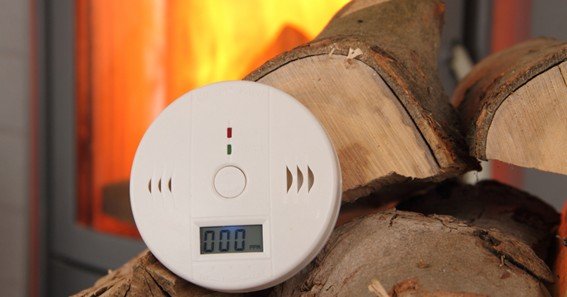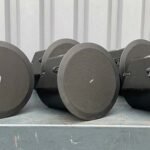It’s not uncommon for homeowners to experience their propane fireplace setting off smoke alarms. Understanding the underlying causes can help in preventing these false alarms and ensuring both the safety and comfort of your home.
Common Causes of Smoke Alarm Activation
1. Dust and Debris Accumulation
Over time, dust and debris can accumulate on the internal components of your propane fireplace. When the fireplace is ignited, this dust burns off, producing particles that can trigger smoke detectors. Regular cleaning and maintenance can mitigate this issue. As noted by a user on Houzz, infrequent use of the fireplace can lead to dust accumulation, which, upon burning, sets off smoke alarms.
2. Improper Installation or Ventilation
A propane fireplace that isn’t properly installed or lacks adequate ventilation can emit combustion byproducts into the living space, which may set off smoke alarms. Ensuring that the fireplace is installed according to manufacturer guidelines and local building codes is crucial. Consulting with a professional can help identify and rectify installation issues.
3. Sensitivity of Smoke Detectors
Some smoke detectors are highly sensitive and can be triggered by minimal particles or even heat. If your fireplace is located near a smoke detector, the heat or occasional minor emissions might set it off. Relocating the smoke detector or replacing it with one less sensitive to such factors can be a solution. A discussion on DoItYourself.com highlights that an overly sensitive smoke detector might need replacement, especially if it’s older than five years.
Preventative Measures
-
Regular Maintenance: Schedule annual inspections and cleanings of your propane fireplace to ensure it’s free from dust and operating efficiently.
-
Proper Ventilation: Ensure that the fireplace has adequate ventilation and that vents are unobstructed.
-
Smoke Detector Placement: Install smoke detectors at an appropriate distance from the fireplace to prevent false alarms.
-
Use of Carbon Monoxide Detectors: In addition to smoke detectors, installing carbon monoxide detectors can enhance safety by detecting harmful gases that a propane fireplace might emit. Better Homes & Gardens recommends placing CO detectors near sleeping areas and fuel-burning appliances.
Conclusion
A propane fireplace setting off the smoke alarm can result from various factors, including dust accumulation, improper installation, and overly sensitive detectors. By understanding these causes and implementing preventative measures, you can enjoy the warmth of your fireplace without the nuisance of false alarms.
FAQ
1. Why does my smoke alarm go off when I use my propane fireplace?
This can occur due to dust burning off inside the fireplace, improper installation leading to poor ventilation, or a highly sensitive smoke detector reacting to heat or minor emissions.
2. How can I prevent my propane fireplace from setting off the smoke alarm?
Regular maintenance, ensuring proper ventilation, adjusting the placement or sensitivity of smoke detectors, and installing carbon monoxide detectors can help prevent false alarms.
3. Is it normal for a new propane fireplace to set off smoke alarms?
Yes, during the initial uses, a new fireplace may burn off manufacturing residues or dust, which can trigger smoke detectors. This should subside after a few uses.
4. Should I be concerned if my propane fireplace sets off the smoke alarm?
While it can be a common occurrence due to non-hazardous reasons, it’s essential to rule out issues like gas leaks or improper ventilation. If in doubt, consult a professional.
5. Can a carbon monoxide detector replace a smoke alarm near my propane fireplace?
No, both detectors serve different purposes. A smoke alarm detects particles from combustion, while a carbon monoxide detector senses CO gas. It’s advisable to have both for comprehensive safety.










